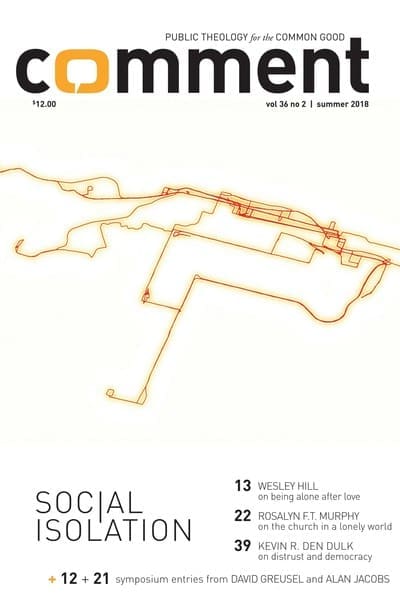Researchers created a banal scenario: a group of people would play a frivolous game of catch, tossing the ball to one another to pass the time, trying to keep it aloft. But the scientists set up the game with one condition: unbeknownst to her, one member of the group would never have the ball tossed her way. Try to put yourself in her shoes: you’re in a group that starts a game of catch; the ball popcorns randomly around the group; giggling and frivolity ensue; you keep waiting for your chance to join in the fun. But the ball never comes your way. You’re patient at first. You smile when others smile. You inch a little further into the circle to try to draw attention. Your smile is becoming more forced now. There’s still a sliver of hope that your exclusion is random. Until eventually you conclude: the ball is never coming your way. This game isn’t for you. You pretend you didn’t want to play anyway. You stop trying.
But this isn’t a just about a game. In fact, the researchers discovered that the ostracized person will testify to an increased sense that life is meaningless and devoid of purpose. The game just pulls the curtain back on a fundamental human need.
Now imagine this isn’t an experiment but the shape of a life: instead of waiting for a ball to come your way in a silly game of catch, you’re waiting for anyone to call or drop by or speak your name. You can’t even express it, but you’re hungering for some sign that you are known.
But no one calls. No one asks how you’re doing. No one listens to your thoughts about the morning news. You are alone. Except there are hundreds of thousands of you. You’re not alone in being lonely—not that that makes you any less lonely.
Loneliness—often a factor of social isolation—has become a societal epidemic in late capitalist societies. The Centre for Social Justice provides a succinct snapshot in the United Kingdom, for example:
As many as 800,000 people in England are chronically lonely and many more experience some degree of loneliness. 17 per cent of older people interact with family, friends or neighbours less than once a week, while 11 per cent do so less than once a month. It is linked to cardiovascular disease, dementia and depression and according to some researchers, its effect on mortality is similar to smoking and worse than obesity. One study revealed that it can increase the risk of an early death by as much as 30 percent. In addition to this there is a strong link between isolation and poverty: having two or more close friends reduces the likelihood of poverty by nearly 20 percent.
The repercussions are felt in bodies, physical and social. It’s not only the lonely who suffer because of this. It rends and destabilizes the entire commonweal. And there are costs. In response, the United Kingdom has now appointed a minister of loneliness to address the societal impact of this epidemic. The question is whether governments beholden to modernist narratives are willing to actually see the sources of the problem in things like family breakdown and even secularization itself. As the poet Franz Wright so powerfully captured it in his poem “Flight,” written to his absentee father: “Since you left me at eight I have always been lonely / star-far from the person right next to me.” This is one of the reasons why, paradoxically, we can be lonely in a crowd.
Of course, we have no one to blame but ourselves. We made this world. As Charles Taylor puts it, in modernity we remade the human person into a “buffered self,” protected and autonomous and independent, free to determine their own good and pursue their own “authentic” path. We shut out incursions of the divine and demonic to carve out a privatized space to be free on our own terms. But we didn’t realize the extent to which we were shutting ourselves in. Congratulations, modern man! You liberated yourself by locking out transcendence; the price was sealing yourself in a cell. We thought we were our own liberators; turns out we might be our own jailors.
Or, to return to Taylor: we might suggest that the construal of the self as buffered doesn’t actually overwrite its nature as porous, open and vulnerable, longing for connection. Indeed, the disastrous effects of social isolation give the lie to the modern spin on the self as autonomous and self-sufficient. Even when we believe that, the hunger of the soul proves otherwise. As Clay Routledge recently observed in the National Review: “Since social connections and love are so central to the human experience, we are vulnerable to great social suffering.”
In this issue of Comment, we have gathered voices that do two things: (1) diagnose and describe the causes and effects of this epidemic of loneliness, without shying away from fundamental questions that official narratives can’t ask. In other words, we need to consider the ways this pathology might be spiritual. And (2) share signs of hope, stories of communities and people who are piercing the buffer, letting light in through drawn blinds, pulling neighbours into circles of friendship—celebrating initiatives like Evermore homes for the elderly in the United Kingdom, or the creative approach in the Netherlands that has college students living among the elderly.
In her famous, posthumously published essay, “The Opposite of Loneliness,” Marina Keegan expressed this fundamental human longing, and the fear of losing it. One might be tempted to dismiss her words as privileged and coddled, except that she names a hunger (and fear) shared by every human heart:
We don’t have a word for the opposite of loneliness, but if we did, I could say that’s what I want in life. What I’m grateful and thankful to have found at Yale, and what I’m scared of losing when we wake up tomorrow and leave this place.
It’s not quite love and it’s not quite community; it’s just this feeling that there are people, an abundance of people, who are in this together. Who are on your team. When the check is paid and you stay at the table.
The culmination of history, as Christians confess it, is an unending feast, with a seat for everyone. Surely in the meantime, the body of Christ has something to say—something to show, something to do—for those who feel excluded, ostracized, forgotten. It might look like us turning to a neighbour and, with a smile, shouting, “Catch!”




